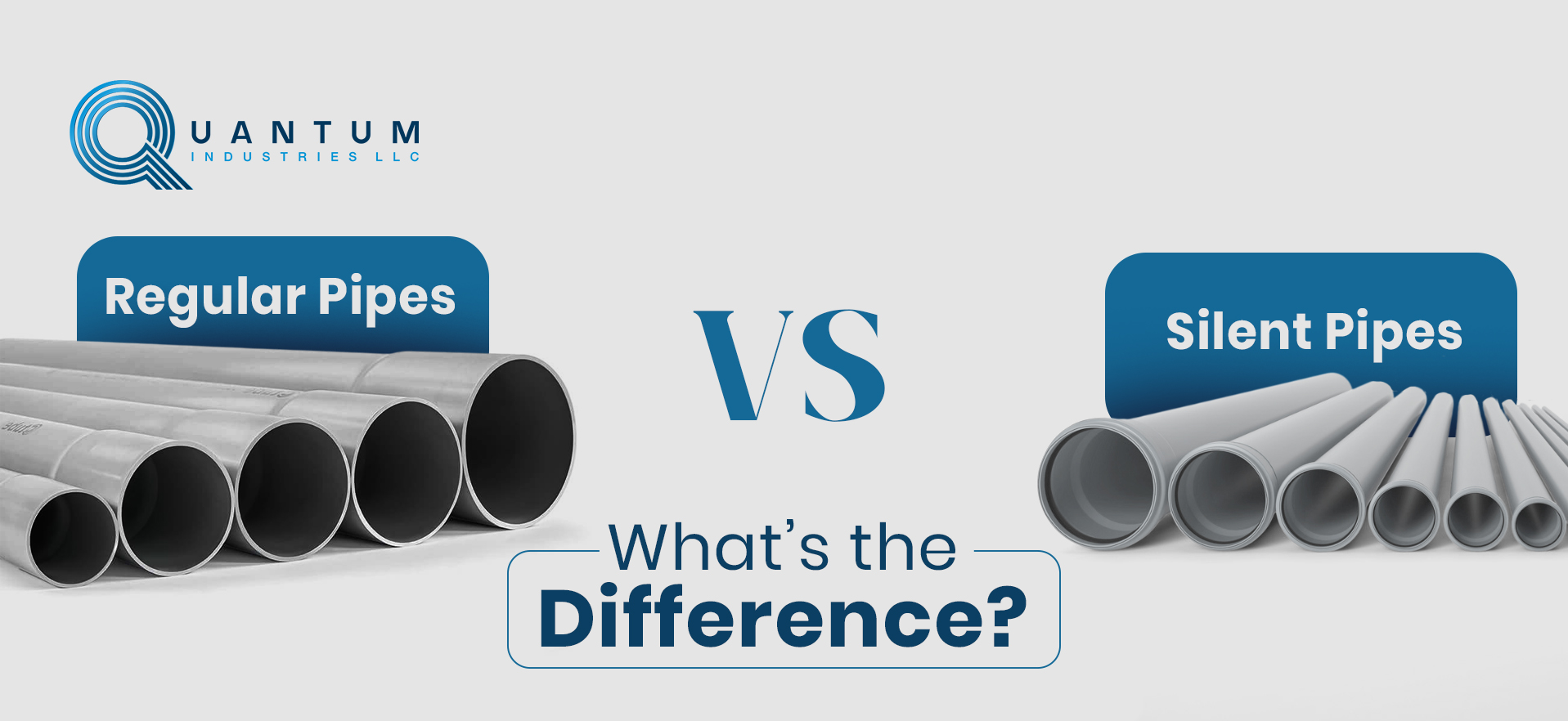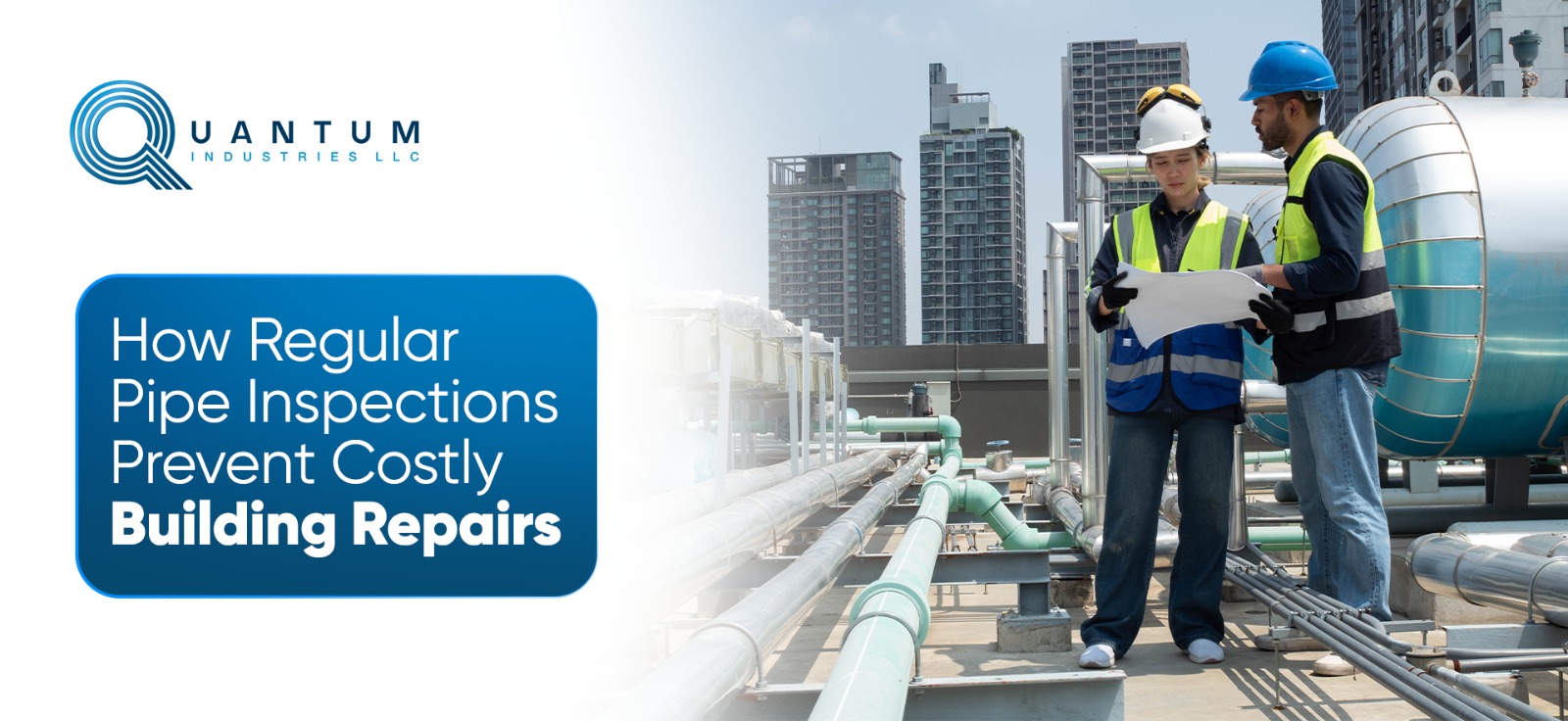



In today’s construction world, especially across the UAE, plumbing isn’t just about moving water from one place to another. Builders, architects, and even homeowners are focusing more on comfort, quietness, and long-term quality.
One major decision in any building project is choosing the right kind of pipes—silent pipes or regular pipes. Both do the job, but when it comes to noise control, material quality, installation purpose, and comfort, they’re not created equal.
In this article, we draw from real-world experience in UAE construction projects and expert engineering insights to help you understand the key differences between silent pipes and regular pipes, and why silent plumbing systems are becoming the preferred choice in premium developments.
|
Aspect |
Silent Pipe |
Regular Pipe |
|
Noise Control |
Engineered to minimize water flow noise and vibrations |
Can be noisy, especially in multi-storey buildings or at night |
|
Material & Build |
Made from sound-insulated, multi-layered polypropylene or mineral-reinforced plastic |
Typically PVC without soundproofing features |
|
Installation Purpose |
Preferred in premium, modern constructions focused on comfort and quality |
Common in budget-friendly or basic projects without noise concerns |
|
Living Comfort |
Reduces noise complaints, enhances resident satisfaction in shared spaces |
May cause disturbances, especially near kitchens or bathrooms |
|
Cost & Value |
Higher upfront cost but adds long-term value; seen as a premium feature |
Lower cost initially but may lead to retrofitting or comfort issues later |
|
Best Suited For |
High-end homes, hotels, hospitals, offices |
Budget homes, temporary constructions |
Silent pipes are specially designed to reduce the noise of water flowing through them. In multi-storey buildings, we’ve seen that installing silent pipes has reduced noise complaints by up to 80%. They’re perfect for places like hotels, hospitals, and residential towers, where peace and quiet really matter.
Regular pipes made from materials like PVC can be noisy—especially when water flows at night or in tall buildings. The sound can echo through walls and disturb people living or working nearby.
In high-traffic buildings like hotels or hospitals, silent pipes help ensure a calm, peaceful environment for guests, patients, and residents alike.
These are usually made from multi-layered or mineral-filled plastic, which helps block sound and reduce vibrations. They’re thicker and sturdier, and often come with international certifications for quality and noise reduction.
These are made from basic plastic materials and don’t have any soundproofing. They work fine for basic needs but don’t offer the quiet or durability that silent pipes do.
The structural design of silent pipes makes them not just quieter, but also longer-lasting in many cases.
Used mostly in premium buildings, silent pipes are chosen when comfort, quiet, and a better living experience are priorities. In many modern UAE projects, silent pipes have become a standard, especially in high-end hotels and apartments.
These are more common in budget-friendly buildings, where cost matters more than soundproofing. They’re typically used in smaller homes or temporary constructions.
If your project emphasizes quality and user experience, silent pipes are a worthwhile investment.
They make a real difference in day-to-day life. People living in homes with silent pipes say they sleep better, feel more at ease, and don’t hear water gushing through walls.
Water sounds, especially in bathrooms and kitchens, can be a constant annoyance. Over time, this leads to more complaints, especially in buildings with shared walls or common bathrooms.
Shared spaces benefit immensely from silent pipe installations—less noise means more satisfaction for everyone.
Yes, they cost 20–30% more upfront, but they also bring long-term benefits. They improve the value of your property, reduce the need for soundproofing later, and help avoid tenant dissatisfaction.
While cheaper initially, they may lead to retrofit costs, soundproofing upgrades, or tenant dissatisfaction in the future.
Silent pipes are increasingly seen as a premium feature in UAE’s real estate market.
Based on extensive analysis, real-world project experience, and expert validation, silent pipes consistently outperform regular pipes in the areas that matter most—
While regular pipes may be suitable for basic, cost-sensitive projects, silent pipes have become the preferred choice in the UAE’s modern residential, commercial, and hospitality constructions due to their superior performance and enhanced user experience.
If you're aiming for quality, durability, and peace of mind in your plumbing systems, investing in silent pipes is a forward-thinking decision.
Contact our certified plumbing experts for a free consultation or schedule a site inspection to evaluate your acoustic plumbing needs.

